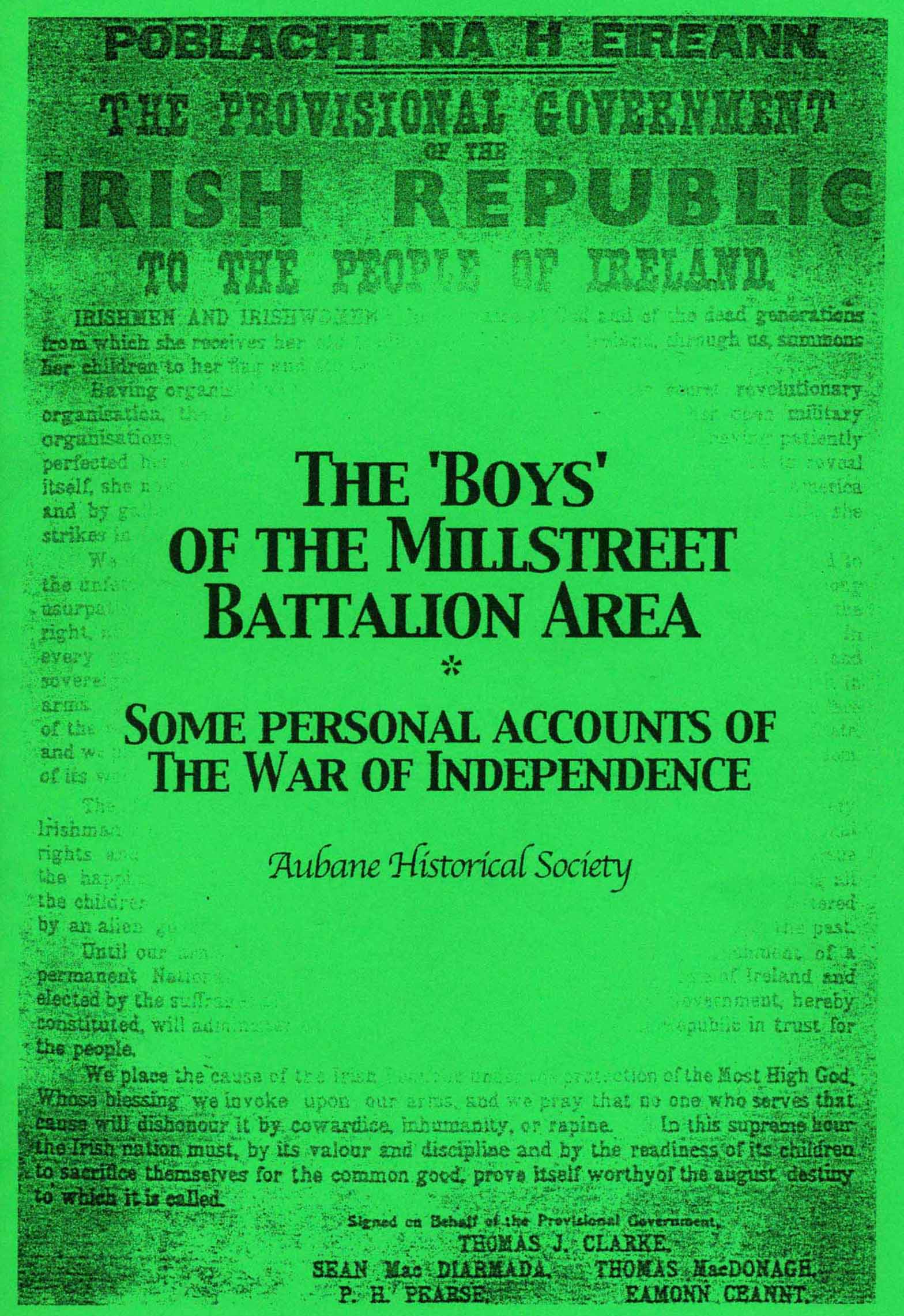
The material in this publication was written, for the most part, approximately 50 years ago but was only made available to the public on 11th. of March this year when the Taoiseach opened the Archive of the Bureau of Military History. The Bureau was set up by the de Valera Government in 1947 to collect accounts of the War of Independence by those who participated in it and witness statements were taken from nearly 1800 people over a ten-year period.
The original material is now available in the Military History Archives at Cathal Brugha Barracks, duplicates are available at the National Archives, copies of some of the material are available in the National Library and much of it has been in private, family, hands since it was written. The material has all become publicly available 25 years after it was originally intended to be made available. It is a great pity that the public has had to wait so long for this type of information on a vital period of our history - the War of Independence.
It has been particularly frustrating because during the last couple of decades the revisionist historians have been allowed to have a field day and make a travesty of this period of our history. This material is the greatest counter there could be to the ritual denigration of the people and the events of that period which we see and hear practically every day in the media and academia.
The people concerned, such as these local contributors, who had to go war to defend the clearly expressed will of the people, in the 1918 and later elections, are constantly having their motives questioned and condemned and even the authorities that forced them to go to war are now given the right to sit in judgement on them. Read The Irish Times on virtually any day of the week to see evidence of this.
This material should be seen as very much an introduction to the history of the period for this area. It is the first rather than the last word on it. These are the accounts of just 10 people in the Millstreet Battalion area and as there were probably up to 800 actively involved it is a very small and incomplete record indeed.
The people involved in the War were unassuming, modest, ordinary people who did an extraordinary thing in getting rid of the greatest Empire in the world at the height of its power and setting up their own state. And when they had done what they had to do they got on with their lives and it would not have occurred to them to sit down and write about what they had done. These accounts were only written down because the governments of the day over a period of 10 years succeeded in persuading a handful of them to do so!
With all due respect to those included here there are many others whose accounts might be even more valuable than these but which we will never see or read for a variety of reasons - including early deaths. We can only hope that more accounts will emerge. No doubt, there are some whose role may be given more significance by the authors in these accounts than it merits - but that's human nature. When recording these statements the contributors were relying on their memory of events that had happened several decades previously and the memory can play tricks over such a time span. And there is clear evidence of this in some accounts here - and I have not attempted to 'correct' them. To have a comprehensive picture the accounts of those on the other side would also be useful and we have included two of these in a previous publication ("Millstreet - A 'Considerable' Town"). Also, I may not have located all the local accounts that are available among the nearly 1,800 accounts in the Bureau's Archive. The Bureau's index does not provide addresses.
So, for all these reasons this is not the full story but we in the Aubane Historical Society would welcome any additional information, corrections, contributions of any sort to this period of our history. Dan Joe Cronin, Aunaskirtane, has already provided us with an account of the meeting of IRA leaders at Kippagh on 24 April 1921 that set up the Southern Divisional Structure (See Annex 2).
In this regard, readers should be aware that it is possible for direct descendants of those veterans of the War who received pensions or medals to obtain copies of the applications for those awards. This includes reports and confirmation by officers of the activities that justified receipt. Applications for such documents should be made to: The Veterans' Allowances Section, Department of Defence, Renmore, Co. Galway (091 743700).
I would encourage all who can to obtain copies of these and, if they so wish, we will publish them as a further contribution to the history of the period. There may well be other records in the form of letters, notes and reliable verbal accounts that could also be used to fill out the history of the period. If we do not account for our own history in this way it will be done for us by others who will present a very different picture of the people and the events. Some of the people of the period, such as Sean Moylan and 'Big Con* Meaney, deserve full biographies but we will wait a long time for the 'historians' of today to do any such thing.
I have only made one addition to the texts and this is to include some nicknames, which I have put in brackets and italics, (some were automatically included by the authors) and this may help to better identify the people concerned as that is how they were generally referred to. I only hope I got them right.
Jack Lane,
Aubane Historical Society, July 2003.
jacklaneaubane@hotmail.com